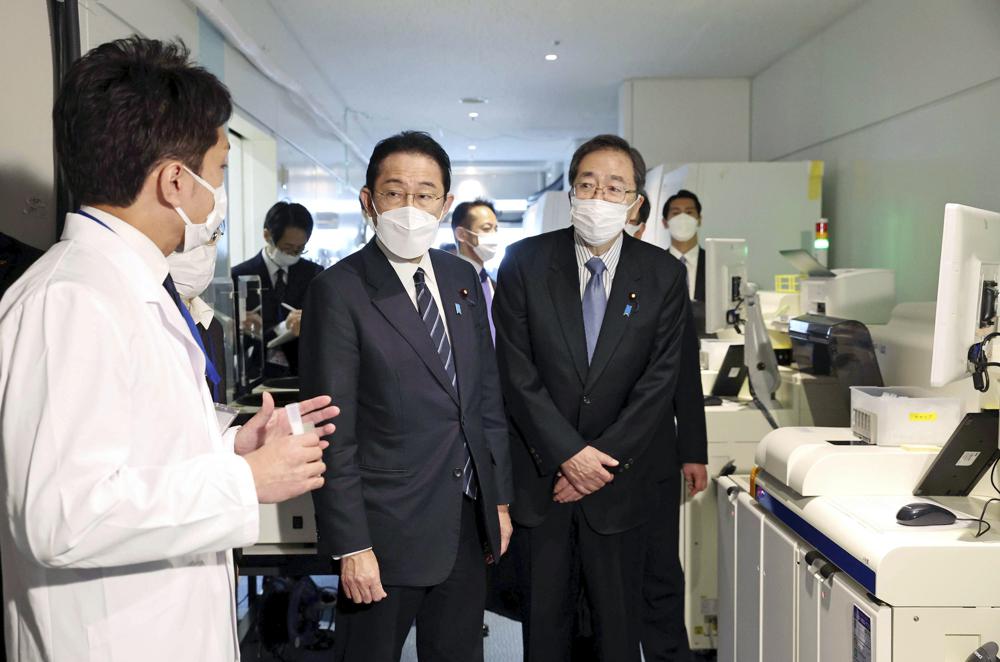Japan is considering easing its stringent border controls amid growing criticism that the measures, which have banned most foreign entrants including students and business travelers, are hurting the country’s economy and international profile.
“I plan to look into easing the border controls,” Prime Minister Fumio Kishida told reporters Saturday.
Kishida did not provide a timeline or other details and said he will make a decision based on a scientific assessment of the omicron variant, infection levels in and outside Japan and quarantine measures in other countries.
Currently, most of Japan is under virus-related restrictions but infections have shown little signs of slowing. Nationwide, Japan reported nearly 100,000 new cases in the latest 24-hour period, including 18,660 in Tokyo.
The current border measures are scheduled to remain in place until the end of February.
Japan has become one of the world’s most difficult countries to enter and critics compare it to the locked country, or “sakoku,” policy of xenophobic warlords who ruled Japan in the 17th to 19th centuries.
The current border rules allow in only Japanese nationals and permanent foreign residents, and have raised the ire of foreign students and scholars who say the measures are unfair, unscientific and force talented visitors to go to other countries. Hundreds of thousands of them have been affected, and critics say the rules are also hurting Japan’s national interest.
Frustrated students have started gathering outside Japanese diplomatic compounds around the world to protest.
Japanese and foreign business groups have also protested the government, saying the prolonged border closure has affected investment, business deals, product development and deliveries. Experts also say the border policy is further delaying recovery in Japan’s pandemic-hit economy.
Kishida unveiled his plan to consider easing border controls Saturday after visiting Tokyo’s Haneda international airport, where he observed quarantine areas and a worksite vaccination rollout for airline workers.
Kishida’s government is scrambling to accelerate COVID-19 booster shots, after facing criticisms over a delayed decision to cut intervals between the first two shots and a third to six months from an initially planned eight. Only about 8% of Japan’s population have received their third jabs. Kishida has set a target to give 1 million doses a day by the end of February.
The government has also faced criticism over its failure to keep omicron out of U.S. military bases, where Japan has no jurisdiction. American troops fly directly into the country without observing Japanese quarantine requirements and they were not tested for weeks, until Tokyo asked them to.
Many of the Japanese public, however, are supportive of the tight border controls as they think troubles such as the pandemic come from outside their island nation. Kishida’s stringent border controls are widely seen as politically motivated to gain public support for his governing party in the upcoming July parliamentary elections.
Kishida has taken a lesson from his predecessor, Yoshihide Suga, who stepped aside after only a year in office partly due to his administration’s perceived weak handling of the pandemic.
(AP)











